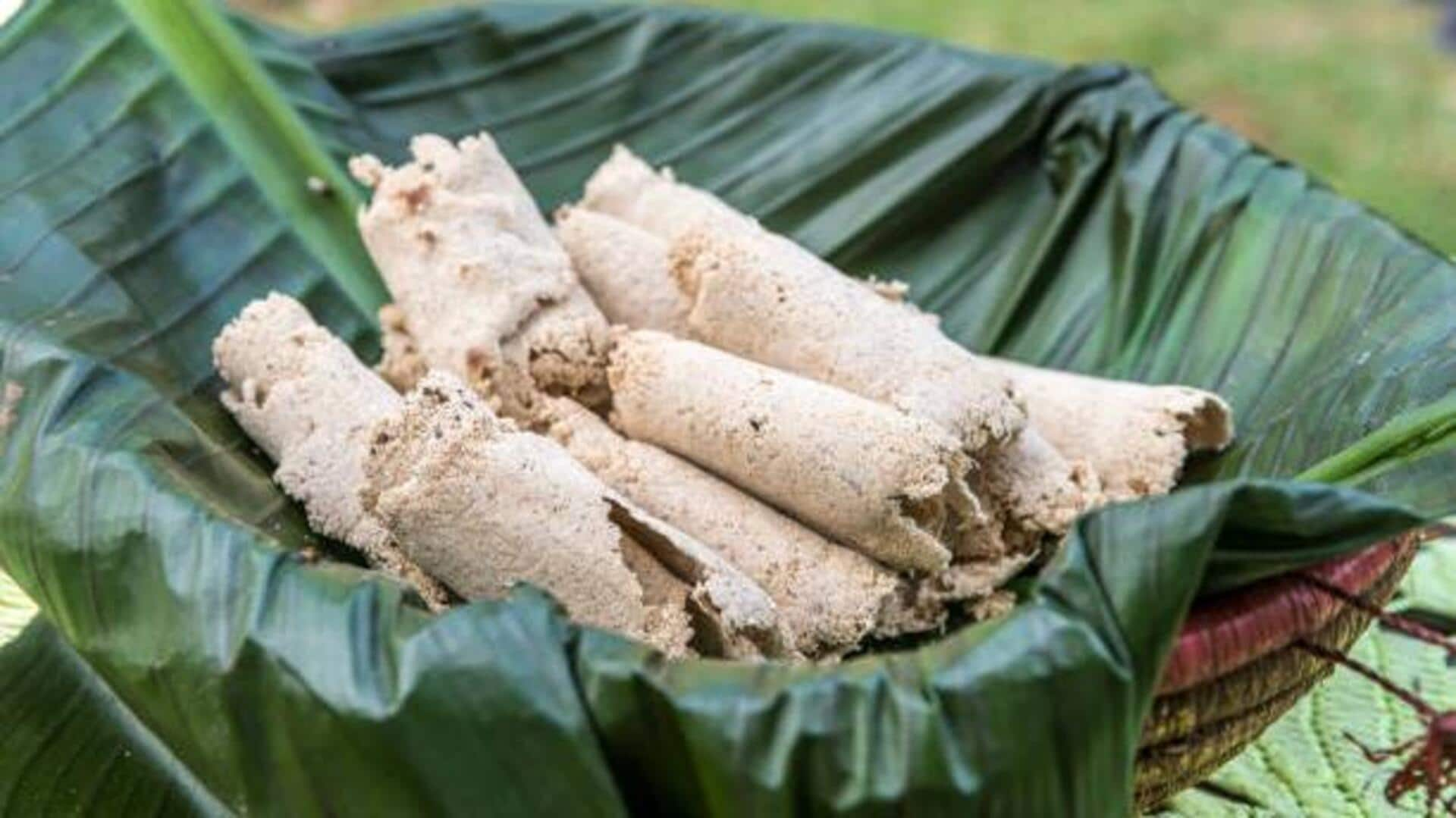
Try these dishes using false banana
What's the story
False banana, or enset, is a versatile plant that grows in East Africa. Unlike its cousin, the true banana, false banana is cultivated mainly for its starchy pseudostems and leaves. The plant is a staple in Ethiopian cuisine, where it is used to make a variety of traditional dishes. Here are five flavorful Ethiopian dishes made with false banana.
Dish 1
Enset porridge delight
Enset porridge is a staple breakfast dish in many Ethiopian households. The porridge is prepared by fermenting the pseudostems of the false banana and cooking them until soft. It is usually served warm and can be flavored with spices such as cinnamon or cardamom for added taste. This simple yet nourishing dish provides essential nutrients to start the day.
Dish 2
Spicy enset stew
Spicy enset stew is another popular way to enjoy this unique plant. The stew combines chopped pseudostems with tomatoes, onions, garlic, and chili peppers for a flavorful experience. The ingredients are simmered together until they reach a thick consistency that pairs well with injera or other flatbreads.
Dish 3
Enset leaf wrap treats
Enset leaf wraps are an innovative way to use the large leaves of the false banana plant. These wraps can be filled with various fillings like lentils or vegetables before being wrapped tightly and steamed or boiled. The result is a tasty treat that retains moisture and imparts a subtle, earthy flavor from the leaves.
Dish 4
Fermented enset bread
Fermented enset bread is made by mixing fermented pseudostems with flour and baking it into flatbreads similar to injera but denser in texture. These breads are often eaten alongside stews or used as utensils for scooping up other dishes on communal platters.
Dish 5
Savory enset salad mix
A savory salad mix featuring raw slices of false banana pseudostem tossed together with fresh greens like lettuce or spinach makes for a refreshing side dish option during meals. It adds crunchiness along with the nutritional benefits associated with consuming more plant-based foods regularly within diets across different cultures worldwide today.